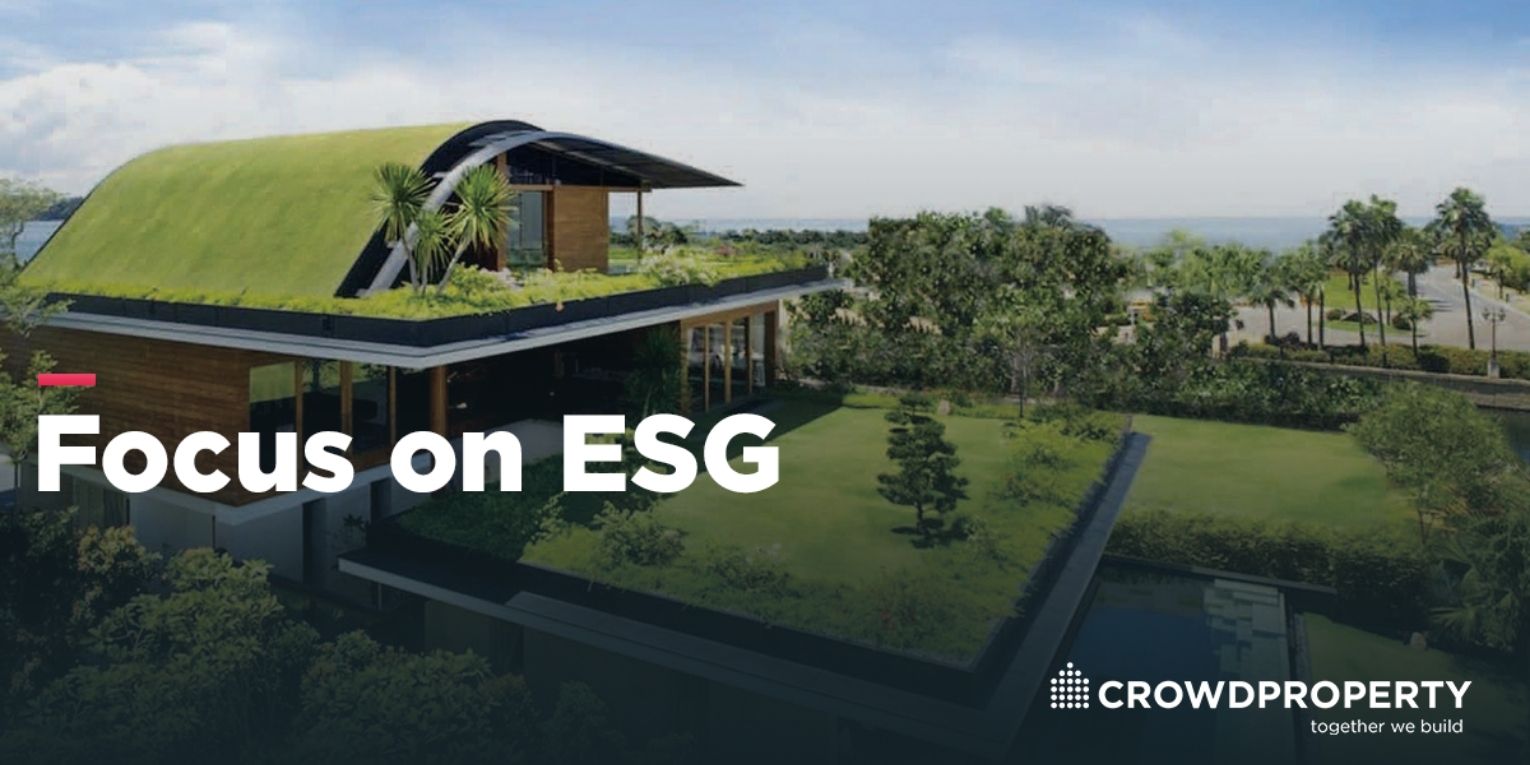Focus On ESG
Posted by CrowdProperty on 12th November 2021 -

In the first of our series of ESG related articles, we look to demystify this broad topic with a particular focus on its importance both in the real estate sector and from a lending perspective.

There will be many of us who have become familiar with the acronym ESG in recent times, particularly given its rise to prominence within investment circles. Encompassing environmental, social and governance issues, the pre-ESG generation will better recognise these terms as socially responsible investing or possibly sustainable investing. Whilst arguably a new exercise in branding, the importance and escalation of our awareness of ESG cannot be downplayed. The continuing popularity of ESG as a concept marks an upward trend in the significance we as individuals place in particular on organisations and the impact of their behaviours.
The adoption and reverence given to ESG marks a defined cultural shift in how society is prioritising these key factors, for example from where we buy our food to where to invest our money. Correspondingly, organisations have started to broaden the provision of products or services they can offer to align with those needs, from electricity providers supplying 100% renewable energy to socially aware investment funds that avoid exposure to alcohol, gambling or tobacco products, for example.
For some, the environment will be a well understood principle - considering a range of issues from climate change to energy efficiency. From a social perspective, many will value the import a company places on its relationship with its local environment to treatment of its staff. Similarly, others will consider an entity’s approach to bribery and corruption, a key consideration in respect of corporate governance. Of course, the concept of ESG is much more broad ranging than these examples but this illustrates the multiple ways in which ESG fundamentals can be adopted.
Environment:
With the prominence of COP26 very much at the forefront of our minds, it seems time appropriate to consider the environmental limb of ESG first. This year’s UN Climate Change Conference, based at Glasgow, looks to complete and implement The Paris Agreement; arguably the most significant world focussed approach to targeting climate change we have seen to date. Events such as COP26 will start to highlight to a broader audience the impacts of climate change and draw attention to the main contributors to emissions. Indeed, according to a Savills report, the built environment is one of the world’s worst and biggest contributors to climate change, being responsible for almost 40% of the world’s energy and related emissions. Clearly the task ahead is not easy, nonetheless this limb is of critical importance for the planet and, by implication, to us. We will look at some key aspects.
Despite a growing awareness of the impact real estate has, there is still a general lack of understanding as to the true impact of real estate on the environment and the real carbon footprint, for example, behind products used and techniques employed. Many will also note how the construction industry historically has typically been slow to respond to change; coupled with labour shortages, in particular those of a skilled nature, this has only exacerbated matters. It is worth noting that the industry is still in the early stages of how to effectively reduce its impact and so sustainable methods in particular continue to be predominantly more expensive than say traditional methods. Understandably, cost remains an important factor in construction decision making, slowing the uptake of these methods.
Nonetheless, we are starting to see environmental factors filtering through, such as increased insistence from planning departments stipulating planning conditions that incorporate sustainable products and technologies on development projects - including relevant accreditation (e.g. BREEAM) through to developers adopting modern methods of construction into their projects. Certainly from a development perspective, planning can be an effective driver of environmental change. Many will be familiar with recent government policies aimed at delivering environmental solutions through retrospective works, from grants towards insulating houses to the recent push for take up of air and ground source heat pumps. Until sustainable and environmentally friendly materials and processes become cost effective however, government will need to drive uptake in the first instance.
At CrowdProperty, we recognise that there is so much we can do and will need to continue to adapt to lower our impact on the environment. Day to day, we have started to adopt flexible working to help drive down the number of journeys made to the office in addition to making an electric vehicle scheme available to all staff. Meeting face to face with our developers is a key part of how we like to do business, nonetheless we have started to be more efficient in how these are undertaken, in particular incorporating multiple site visits in one trip. Similarly, we do not prescribe the number of visits instructed third parties are to make to site either which also helps reduce our total related carbon footprint. Even placing recycling stores in the office provides a simple but effective way to combat climate change.
Whilst we are currently looking at how we can revise our lending facilities to reward developers who adopt sustainable measures, more broadly, we continue to actively encourage and invite proposals for projects that incorporate sustainable techniques. Indeed, we do recognise that some sustainable practices and modern methods of construction, particularly modular builds, can present issues around how finance can be structured but we are happy to engage with and assist developers where we can.
CrowdProperty has funded over £350,000,000 of property projects by SME property professionals, funding the development of more than 1,750 homes. This is still just the start of our mission to transform property finance to build more homes, increase spend in the UK economy and ever more efficiently and effectively match the supply and demand of capital for the benefit of all. Together we build a better future.




